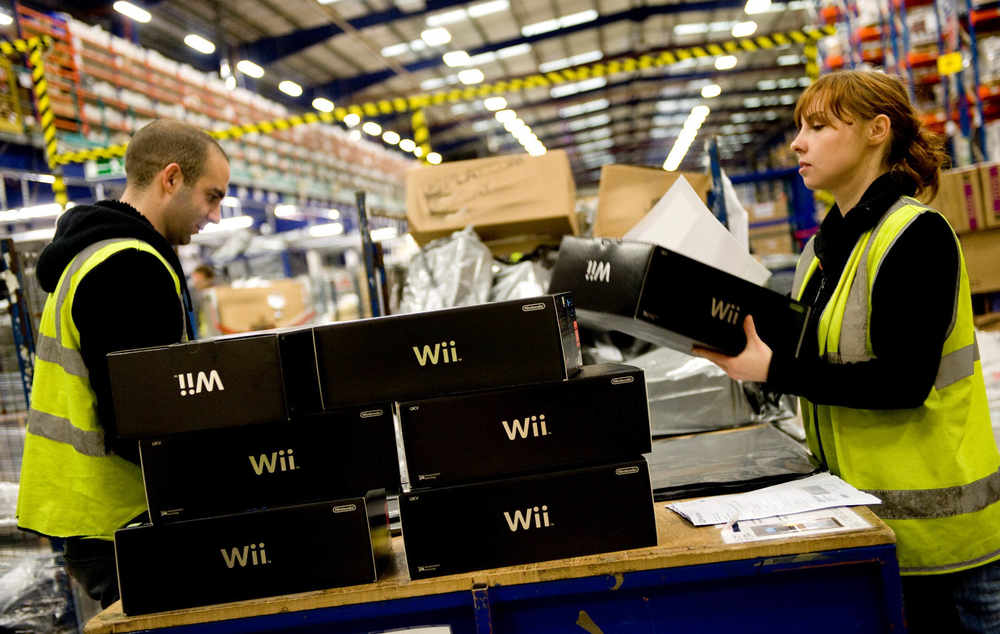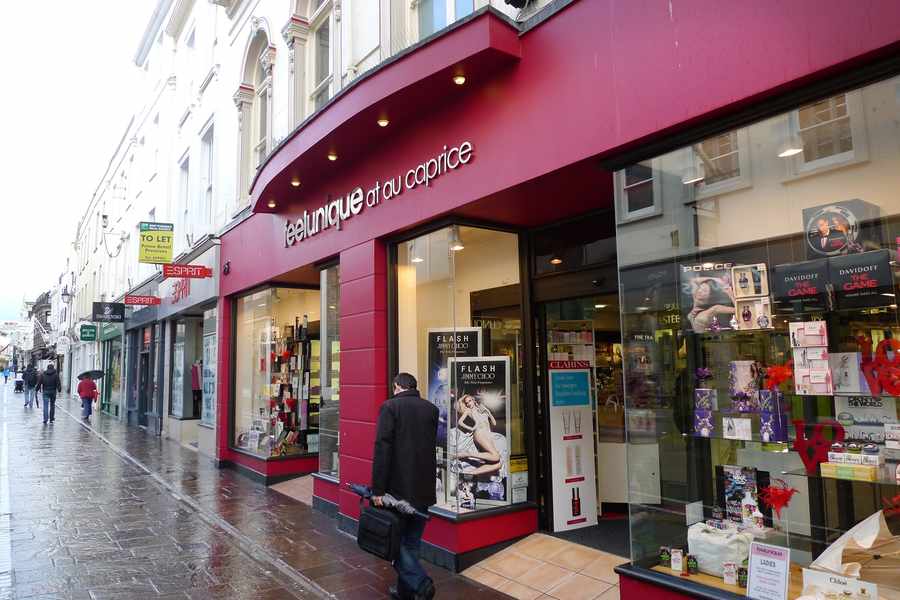Successive economic advisers and commentators, too, have warned of the dangers of putting the economic golden eggs into the one financial services basket.
In all fairness, it is not as if they haven’t tried.
Less than ten years ago, there was a booming industry in ‘fulfilment’ which, fundamentally, is about supplying orders through the post.
Because the Channel Islands are outside the European Union, companies sending orders from the islands were able to take advantage of a tax rule – Low Value Consignment Relief, or LVCR – that enabled goods under a ‘de minimis’ limit of £16 to be sent to the UK without paying VAT.
For a few years, it worked quite well, particularly for firms sending CDs and video games.

By 2006, home-grown company Play.com was boasting sales of £248m and employing nearly 350 staff in the Island. But by January 2013, Jersey’s biggest online retailer had announced that it was moving its business elsewhere, with the loss of nearly 150 jobs.
The reason, which has been well documented, is that the UK government – under pressure from an army of small retailers – took the (political) decision to change the LVCR rules just for the Channel Islands, not least because some of the ‘big boys’ – notably HMV and Amazon – were greedily eating up the Channel Islands tax advantage and depriving the UK of millions of pounds of tax revenue.
Since the rules changed in April 2012, VAT has been payable on all goods exported by Island firms to the UK. Yet ironically, UK exporters can send goods to Jersey up to the value of £240 without paying any of our Goods and Services Tax – an unfairness that some Jersey retailers are only now beginning to articulate.
The governments of both Channel Islands did attempt to fight UK Chancellor George Osborne’s decision.
They even took their case to the High Court, at considerable expense. They lost.
Many of the larger businesses upped and went to places were LVCR was still available (Gibraltar, Switzerland and Hong Kong, to name a few). A handful of locally based firms hung on in here.
But in June this year, one of the largest ‘home-grown’ firms, beauty products internet retailer Feelunique, announced that it was moving its warehouse to the UK, with 51 jobs on the line.
The following month contact-lens fulfilment centre Daysoft said it would now be cheaper to handle orders in Blantyre, Scotland, where the lenses are made.
Both have pointed to geographical location in the UK as the main incentive for their move. Some sceptics might believe that it is more about the demise of the tax advantage furnished by LVCR.
In another twist in the tale, the European Union now intends to eliminate LVCR once and for all, from all member states, as early as next spring.
So what does the future hold for those affected?

Even now, it is difficult to put an exact figure on the number of people who lost their jobs when fulfilment went bust, says Sophie Le Sueur, operations director at Social Security’s Back to Work scheme, although the estimate at the time was up to 800 in Jersey alone.
‘The impact was bigger than just firms such as Play.com and Indigo Lighthouse – there were knock-on impacts on the postal service and transportation, and not all of those people would have necessarily registered as unemployed with Social Security,’ she explained.
What is not in doubt is that the Back to Work scheme itself was set up in 2012 as a direct result of the number of anticipated redundancies.
That scheme has continued ever since, with an annual budget of £14m, set to continue for at least the next four years.
Ms Le Sueur said: ‘Looking at the major companies who had significant redundancies, fewer than 30 people are currently registered with us as actively seeking work.
‘Many of those may have had a job in the meantime, but at this moment in time they are looking for a job.’
She said that overall the team had had ‘great success’ in placing people back into work.
‘We ran specific training programmes to ensure the people affected were making use of their transferable skills,’ she said.
‘Some moved into other fulfilment roles (such as at Feelunique) and others moved into hospitality, retail and stores, or manual work such as construction.’

For a firm that started in the Island from nothing in 2005, Feelunique are standing proud as they approach their tenth anniversary.
Like a number of other Jersey-born e-commerce ventures, the company was set up by a couple of entrepreneurs – Aaron Chatterley and Richard Schiessel – who had an idea for an internet retail business, in this case selling cosmetics and beauty products online.
Small, compact products, relatively high value and with an extensive range, the choice was a good one, says chief operating officer Jim Buckle, who joined the firm 16 months ago.
‘We’re not massive when you look at a company like Amazon, but we’ve not done badly,’ he said.
Initially branded as Island Cosmetics, the Feelunique label was actually coined by another Island businessman, Lawrence Huggler, owner of The Club hotel and spa in Grenville Street, who is still on the board of directors.
Currently the firm does sell into Europe, although the UK is the biggest market, and as well as the online business – which has offices at Heron House, near the Airport – the firm has acquired two long-standing Island fragrance houses, Au Caprice and House of Fragrance at Red Houses, and beauty salons at Longueville and St Brelade.
The stores enable them to keep a broad range of products and maintain good relationships with the perfume houses, who are choosy about who they allow to promote their brand.
‘Part of what we are doing is to have a broad range – nobody else in Europe has so much – and in the islands we can have a multi-channel relationship.
‘If someone comes in to the shop, they can use the tablet in the store to order, and there are staff with a good knowledge of the products.’
Keeping that personal service online can be tricky, but the company is exploring how they can introduce specialist advice to the website shopping experience.
‘The big department stores can be off-putting,’ said Mr Buckle, ‘and companies with branding are pushing only that brand. Online, there is not that pushy environment, and if you can get advice in a friendly way it makes a nice combination.’
In 2013 the founders sold the company on to private equity firm Palamon.
It now has a new chief executive, Joel Palix – former president of the Clarins group – and a London office of 50 staff and up to 150 staff across Jersey and Guernsey, including marketing and customer service teams.
So why the decision now to move the warehousing and jobs away from the Island?
‘If LVCR was still there, we would hold on a bit longer,’ admits Mr Buckle.
‘But it really boils down to one reason – Jersey is a long way from where most of our customers are.
‘Our best offer is two days from the warehouse, but expectations now are for next-day delivery, especially at Christmas, and we’re a bit nervous about fog, and boats – those things can be a challenge.’
There’s also the problem of access to temporary labour at key points in the year, he says.
‘Last Christmas, when we wanted to hire 30 or 40 people, it was really hard to turn that around.
‘When companies like Amazon were here, there was a bigger pool of labour and we could feed off that.
‘Also we were reaching a point where our St Peter warehouse was at capacity and last year we really struggled.
‘We did think about using two sites, Jersey and the UK, but the logistics were too complicated.
‘It is a shame, we would have liked to retain the staff – but we can still maintain a presence here, and that gives us something different as a business.
‘For roles outside of picking and packing, there is a strong finance bias here and it’s hard to find people with retail or commercial experience.
‘On the other hand, if you get good people they will want to stay, because it is an interesting business, whereas in London there is a bigger pool of staff, but they tend not to stay.’
Mr Buckle, who spends two days a week in the Island, added: ‘I think it is a good environment here for starting a business.
‘There is a good entrepreneurial culture, but it is a challenge above a certain size.
‘But running a business across two jurisdictions works fine, with technology – we have management meetings online – and you get a slightly different perspective.
‘Overall, we’re happy with what we’ve got.’
Tim Dunningham has his roots in fulfilment.
The founder of Flying Flowers was exporting Jersey-grown produce by mail order long before the advent of internet sales or Amazon, and the company he now runs, Jersey Choice, is still in the same line of business.
Currently the firm has a call centre in David Place and nurseries in St Ouen and St Martin, producing plants and potted arrangements for gardeners and gifts.
That is not to say that coping with the ending of LVCR has been easy. In fact, Mr Dunningham has already complained to the European Union about the impact on his business and says he intends to make a claim for compensation.
‘I don’t have any moral objection to LVCR being removed – it’s just the way they went about it,’ he explained.
‘They did not give enough time.
‘The way our business operates is that we set prices for spring in October of the previous year, and because LVCR was discontinued on 1 April 2012, it cost us an unnecessary £400,000.
‘We had a lot of orders in advance, so that was unfair.’
He also believes that the action taken by the UK government was illegal.
‘It’s quite a straightforward argument, but Jersey’s relationship with the EU is complex. For duty, we are inside the EU, but for VAT we are outside. In the UK, they are not allowed to charge duty on anything shipped from the Channel Islands.
But they way they changed LVCR made it into a duty.
‘VAT is a tax on products, but duty varies according to where the goods come from and what the product is.
‘But the UK is disallowing LVCR on the basis of where it comes from and that makes it a duty. That’s illegal.’
The problem with fulfilment stemmed not from the Channel Islands, but from some of the product categories, in particular CDs and games.
And there are still vast numbers of those products entering the UK from other places, such as Hong Kong, Switzerland and the United States.
‘They picked on Jersey because of political expediency,’ he said.
‘They should not have stopped LVCR for every business.
‘We have been in Jersey since the start, and we are still in Jersey.
‘We are a Jersey business.
‘We had just moved into profit in 2011 when this hit us. It was a very difficult time. We had to adapt and put prices up.’
Earlier this year the company applied to develop one of their St Ouen glasshouse sites for housing, to rationalise and reduce debt.
‘We have been talking to Planning for over two years about part of the law that is designed to support businesses in our situation,’ he said.
Currently the firm employs around 30 staff full-time, but employs up to 100 temporary staff to cover peak times.
‘We use a lot of people with young children, and people who are studying,’ he said.
‘In the call centre we train them in the office environment and many have gone on to good jobs. They get some life experience – some are quite nervous at first, so it’s a big help.
‘Many of our customers are elderly and the traditional business is declining. Nowadays people want a garden, but they don’t want to spend time on it.’
He has plans to move the business on – pre-planted hanging baskets, an online-only brand, container plants as gifts – for which he will need a UK warehouse – and marketing through sites such as Amazon and Groupon.
‘Really, the only downside to having the business in Jersey is next-day delivery,’ he said.
‘The advantages are that it is easer to get better-quality staff. And people underestimate the Jersey brand.
‘The only issue we have is the thumping losses in 2012, and we’re hoping to resolve that by developing our site.’






